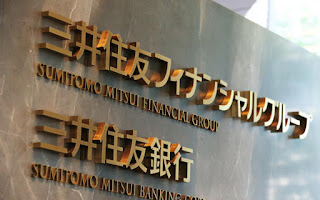Japan's SMBC to buy US freight car lessor
American Railcar Leasing deal may position bank to gain from Trump agenda
TOKYO -- Japan's Sumitomo Mitsui Banking Corp. said it is purchasing a U.S. company that leases freight cars, in a move calculated to gain from demand spurred by increased infrastructure spending after President-elect Donald Trump takes office.
SMBC will purchase all shares of American Railcar Leasing owned by a fund controlled by U.S. billionaire investor Carl Icahn. The $2.8 billion deal is set to close during the first half of next year.
ARL is the sixth-largest freight car leasing company in the U.S., based on the number of cars owned. Customers leasing ARL cars include those moving cereals and grains, petrochemicals and natural resources. The company earned roughly 12 billion yen ($102 million) in operating profit on approximately 35 billion yen in sales in 2015.
SMBC purchased another U.S. rail car leasing company in December 2013, which was rebranded as SMBC Rail Services. The Japanese bank aims to expand its American market share with the latest deal. SMBC will consider merging the two units at a later date.
Freight car leasing has long been considered a stable growth business, since it relies on domestic demand. But there is a chance that an economic stimulus package from the Trump administration may give the segment an added lift. If Trump's domestic policies lead to increased infrastructure spending, it will boost demand for shipping.
SMBC began negotiating the purchase before the Nov. 8 presidential election in the U.S., but apparently the Japanese group decided that leasing opportunities will increase if Trump delivers on his pledges to strengthen the American economy.
Overseas strategies at Japanese banking groups have centered on Asia for the past few years, but that approach now faces headwinds amid economic slowdowns. Some observers say the lenders are shifting the focus of their international expansion to the U.S. for the time being. Japan's three megabanks lent $176.5 billion to North America during the year ended March 2016, according to the Bank of Japan. That marks a double-digit increase over the previous year, putting North America ahead of Asia as their largest lending market.
Inside Japan, the BOJ's negative rate policy continues to put the squeeze on deposit and lending margins. The problem is compounded by the woeful demand for corporate financing, pushing banks to develop sources of earnings outside of loans.

Comments
Post a Comment